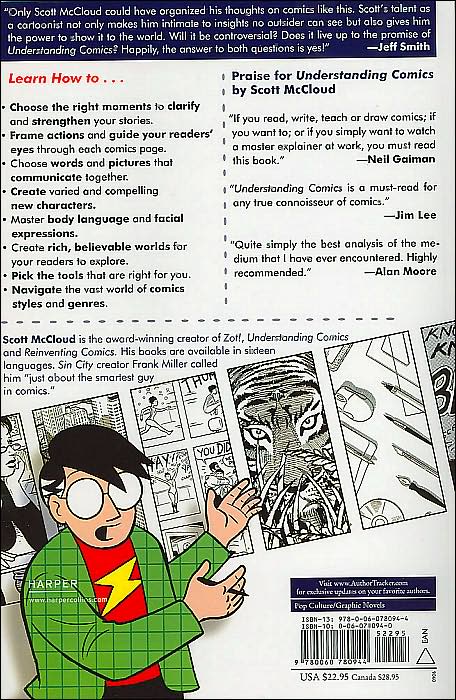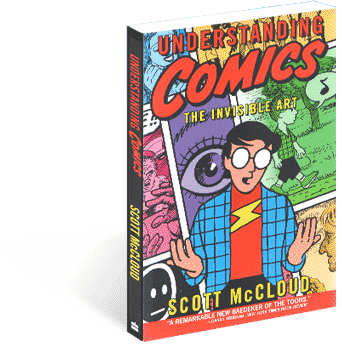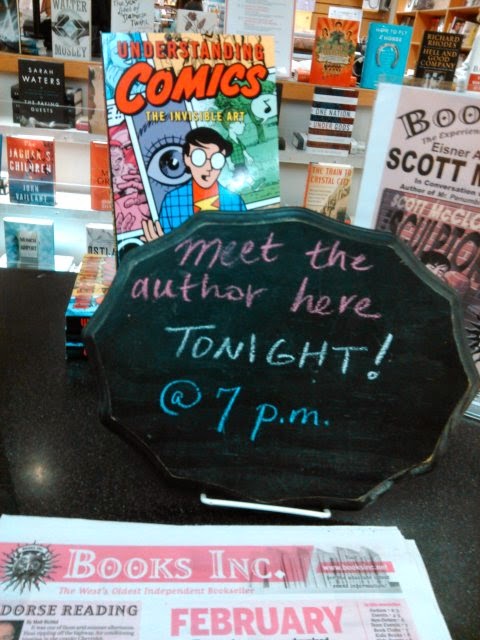

As an optimist - and an ethusiastic one at that - I was closely linked to the gargantuan corporate media hype machine plastering ".com"s on every street corner throughout the 20th Century's last years and when that bubble burst, it was assumed by many that it was time to burst my bubble as well. Many had been appalled by the clunky computer art in 1998's The New Adventures of Abraham Lincoln and my relentless advocacy of comics on the Web and disdain for traditional industry practices was beginning to wear thin in the struggling print market. By 2000, however, I was ripe for a backlash. Understanding Comics had a long honeymoon, only drawing serious public critical scrutiny nearly 6 years after its 1993 publication. Neil Gaiman, Coraline, The Graveyard Book It will provoke a lot of arguments, it will make a lot of people think, and it may ultimately change the world a little - which is, after all, what a manifesto is for."

"Scott McCloud's Reinventing Comics is a manifesto, and an audacious one, irritating as the grain of sand which may one day produce a pearl. Frank Miller, Sin City, 300, The Spirit Once again, he's opened the floor to debate that will no doubt for on for years - this time, with not just the definition of comics, but its very fate at stake." "Scott McCloud has got to be just about the smartest guy in comics. Strongly recommended for all public and academic libraries." "This is an exceptional book (in comic format) of ideas presented as a reader-friendly theoretical lecture - and it may just be the blueprint for the very future of the comics industry. This time he's looking into the future rather than the past." Scott McCloud has once again transcended the world of comics and tapped into much deeper issues of creativity, entertainment and economics. "Anyone involved in interactive entertainment (games, web, etc.) should read this book.

Part Two explores comics and new technology, including digital production, digital distribution, and the design challenges of comics in a digital environment. Part One examines comics as an art form and as literature, creator's rights, the changing business of comics, public perception, and gender and ethnic diversity. The controversial 242-page follow-up to Understanding Comics advocates 12 different revolutions in the way comics are created, distributed and perceived with special emphasis on the potential of Online Comics.


 0 kommentar(er)
0 kommentar(er)
